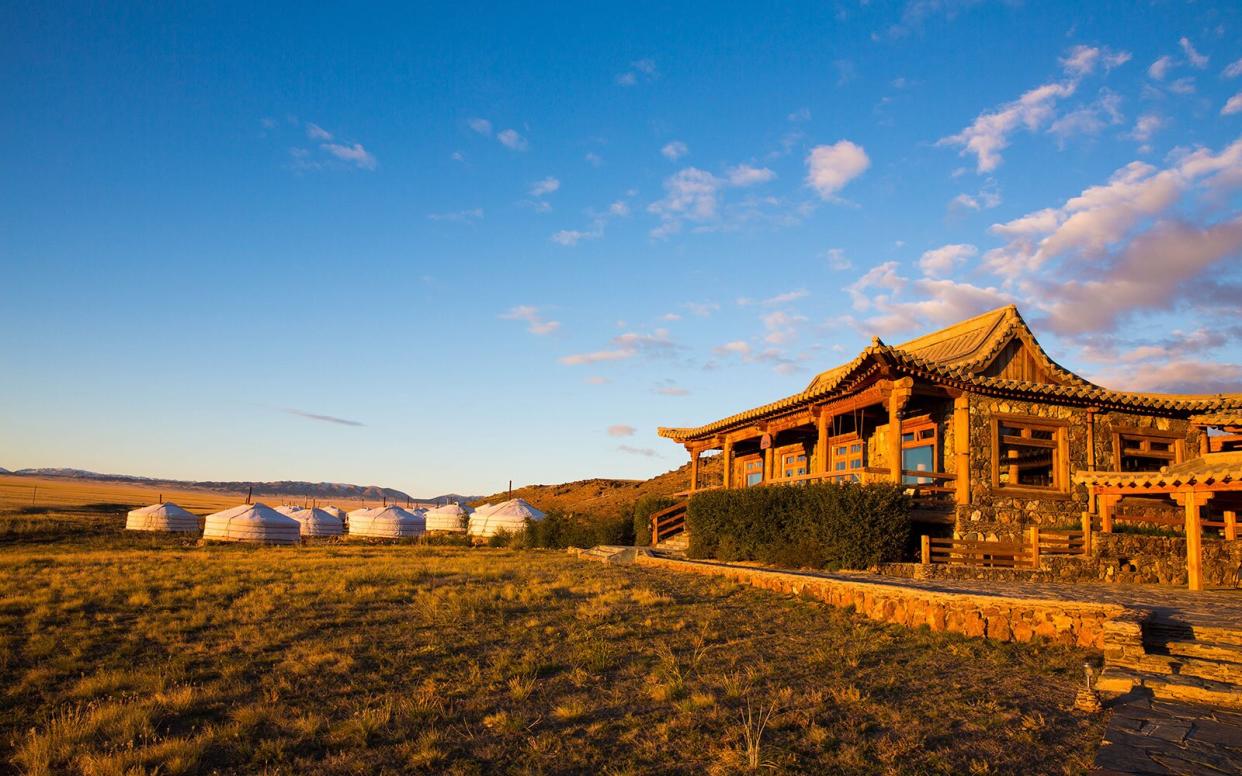World's Most Remote Hotels

Courtesy of Three Camel Lodge
For most of us, running out of toothpaste is easily remedied by a quick trip to the local drugstore. For Kirsten and Carl Dixon, owners of the Winterlake Lodge on mile 198 along the Iditarod Trail in South Central Alaska, it involves calling an air taxi and taking a one-hour flight to Anchorage. "There are no roads here. We fly to get Band-aids," says Kirsten, who moved to the wilderness with her husband 25 years ago to build the lodge.
Ever since, the Dixons have been offering guests the rare opportunity to experience nature in a pristine environment where visitors hike glaciers, dog mush, or take evening helicopter rides to do ridge walks—all without seeing another soul. "The destination is worth the journey," explains Kirsten. "Our guests feel like Alaska backcountry explorers."
See our list of the world’s most remote hotels.
Although it may take several airplanes, a boat, a train, a bumpy Jeep ride, or a long hike to reach a desired hotel, more travelers these days are willing to go the distance. Why?"It truly makes you feel that you have accomplished something just by taking the journey and going out of your comfort zone," says Philippe Kjellgren, president and co-founder of Kiwi Collection, a luxury-resort network. "You’ve earned your stripes when you arrive."
And once visitors do finally reach these remote spots, what awaits are some truly extraordinary travel experiences: face time with a gorilla, camel trekking in the desert, or drinking tea with a family of Mongolian nomads.
Accessing the Three Camel Lodge in Mongolia’s Gobi Desert, for example, requires flying through Beijing or Seoul into Ulaanbaatar, the capital of Mongolia. Then it's a 60-minute prop-plane flight into Dalanzadgad, the capital of South Gobi Province, followed by a 90-minute drive along a dirt road.
It’s no easy feat, but the rewards are obvious. "There are wide expanses of sand, dune, mountains, and gravel that go on and on, with nothing between you and the horses," says Lauren Bonilla, program director at Nomadic Expeditions, which owns the lodge. "You won’t see a soul for miles, and then suddenly, a herder with camels or a pack of vultures will appear."
Of course, small lodges and inns dot many a lonely landscape. But our list offers places that, though remote, still provide luxurious creature comforts. The four Peruvian mountain lodges along the Salkantay Trail to Machu Picchu, for example, are located four to eight miles from each other, and three of them can only be reached by foot or on horseback. (It took 7,000 mule trips to transport the building materials.) Yet each one offers eiderdown comforters, hot showers from fresh-water springs, Jacuzzis, fireplaces, Wi-Fi service, and a wine list. "You feel the remoteness of the glaciers and authentic hamlets and villages, but you’re not roughing it," says Enrique Umbert, Sr., founder and president of Mountain Lodges of Peru.
To meet our ever-growing desire to stray where few have gone before, developers are seeking more expansive projects, taking us beyond the limits of land and earth. This spring, there are plans to begin build the first pull-out-all-the-stops seven-star underwater hotel, Hydropolis, in Qingdao, China. Another is in the works in Dubai. And for a truly stellar experience, "Galactic Suite" is a hotel in space that its founders say could be open by 2012 (price tag for a three-day stay: $4 million).
In the meantime, these hotels offer a more down-to-earth stay—and a new-frontier opportunity.
